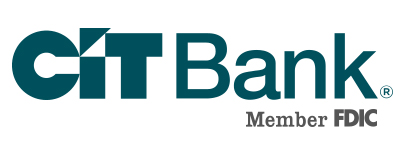Pros:
- Virtual Wallet rates are competitive
- Relationship Rates offer higher rates
- Student accounts offered
- Business accounts are available
Cons:
- Low interest rates for other accounts
- Accounts have monthly fees
- High required balances to avoid fees
- Must open CDs at branch locations
Pros:
- Low opening required amounts
- Competitive interest rates on accounts
- Variety of accounts offered
- Free ATM transactions and fee refunds
Cons:
- Accounts have monthly fees
- Savings have high required daily balances
- CD early withdrawal penalties are high
- Excessive withdrawal fee high
Opening PNCs Virtual Wallet accounts earn competitive interest rates. This includes three specific accounts: the Spend, Reserve, and Growth accounts. The Spend account is your checking account for everyday spending. The Reserve account is a short-term savings account. It offers overdraft protection for the Spend account. The Growth account is for longer-term goals, like a down payment, car, or vacation. Virtual Wallet accounts offer interest rates that are competitive with other online accounts. You must link these accounts together to earn competitive rates.
Some Growth savings accounts offer slightly higher rates with Relationship Rates. You must qualify to earn the Relationship Rates. To qualify, you must have a set amount directly deposited into the Spend account. Making five debit transactions also qualifies you. The amounts of direct deposits vary from $500 to $5,000 depending on the account. If you qualify, your money will earn even higher interest rates.
PNC offers accounts for college students. With proof you are enrolled in college, the monthly fee is waived. This account offers a debit card and online and mobile banking. The same features of Virtual Wallet are available for the college account. Parents can sign up to receive alert texts when balances are low or overdrawn. Some colleges offer other perks with the account. For example, one college allows you to use your student ID card as a PNC ATM card.
PNC offers small and commercial business accounts. Checking, savings, and money market accounts are available. CDs, credit cards, and online services for your business are available. Bill pay, remote check deposits, and online payroll are services offered.
PNC standard account interest rates are low. To earn the competitive rates on Virtual Wallet accounts, you must meet the set requirement. If you open a standard account or do not meet the requirements, interest rates are low. To earn the competitive rates, be sure you open the right accounts and meet the requirements.
Most PNC accounts have a monthly fee. The fees range from $5 to $25 depending on the account. There are ways to waive the fees. Having a set amount in the account or in qualifying PNC accounts will waive the fees. Direct deposits of a set amount or if you are 62 years or older will waive some fees. As of March 2019, PNC loan and investment balances are not included to waive monthly fees.
The amounts required to have in PNC accounts to waive the monthly fees are high. The money market account requires $5,000 to avoid the monthly fee. Virtual Wallet accounts require $500 to $5,000 to waive the fee or $10,000 to $25,000 across all PNC deposit accounts. After March 2019, loans and investment balances will no longer count toward the total amount to waive fees. Their standard savings account only requires $300 to waive monthly fees.
Customers must open PNC CDs at a branch location. Most PNC CDs required $1,000 to open. The CDs with terms of seven to 89 days require $5,000 to open. PNC has branch locations in 19 states and the District of Columbia.
First IB only requires $25 to open the free checking and savings account. The Interest checking, Money Market Savings, and Tomorrow's Tycoons require $100 to open. CDs required $1,000 to open. The HSA does not have a required amount to open.
First IB accounts earn competitive interest rates. The account rates are competitive with other online-only accounts. To earn the best rate for the checking account only requires $500 in the account. The savings accounts do not have a set limit to earn the competitive interest rates.
A variety of accounts are available through First IB. The accounts include:
- Free checking
- Interest checking
- Money Market Savings
- Free savings
- CD terms from three to 60-months
- Health Savings Account
- Tomorrow's Tycoons savings account for children
- Coverdell Education Savings account
- IRA accounts
- Credit cards, personal, student, and auto loans
- Home equity loans and mortgages
- Business checking, savings, and CDs
- Business lending options
First IB is a member of the ATM Plus network, giving you access to millions of ATMs across the U.S. Certain accounts with First IB reimburse up to $10 each month in ATM fees. The Interest checking, money market, and regular savings offer the reimbursement option.
Most First IB accounts have a monthly fee. The fees range from $2 to $10 each month. Waive the fees by keeping an average daily balance in the accounts. The required balances vary between accounts.
The First IB Money Market Savings account requires a daily balance of $4,000 to avoid the monthly fee. The Interest checking account requires $500 to avoid the fee. Free savings and checking accounts do not have a required balance to avoid the monthly fee.
The early withdrawal penalty for First IB CDs are high. CD terms for three-months requires 90 days of interest. Terms from six to 18-months require 180 days of interest. The fee for CD terms over 24-months is 360 days of interest.
The government limits the withdrawals from savings accounts to six per month. The excessive withdrawal fee for First IB accounts is $30 per extra transaction, which is higher than other banks. The withdrawals restrictions apply to the money market and Free savings accounts.


